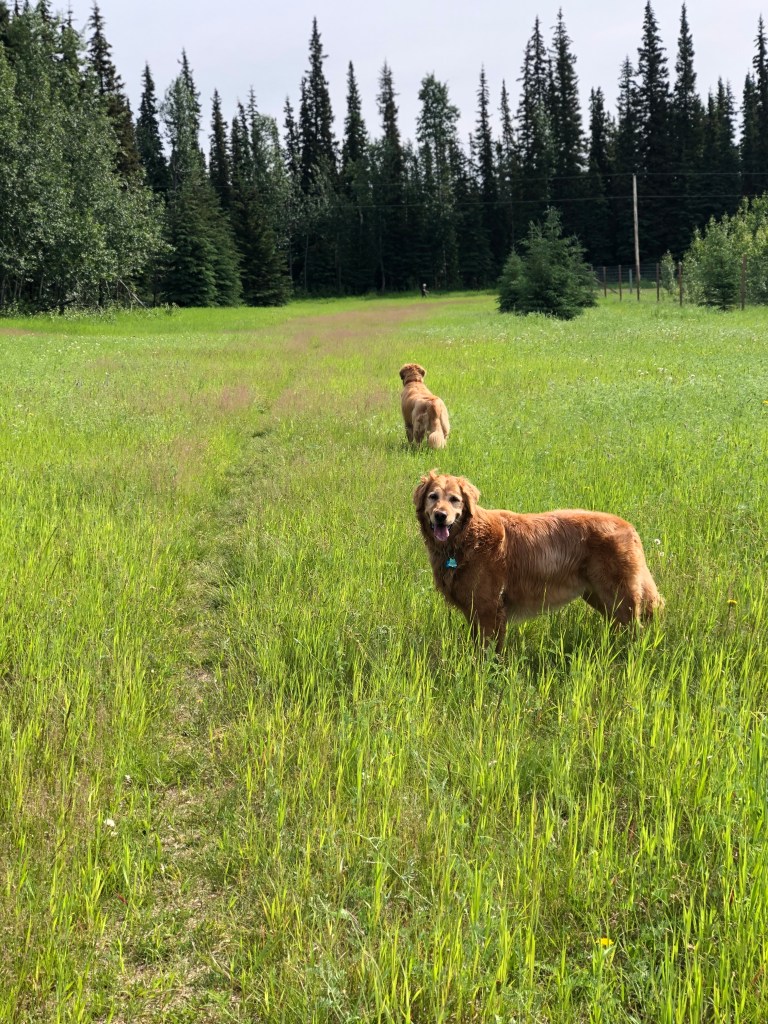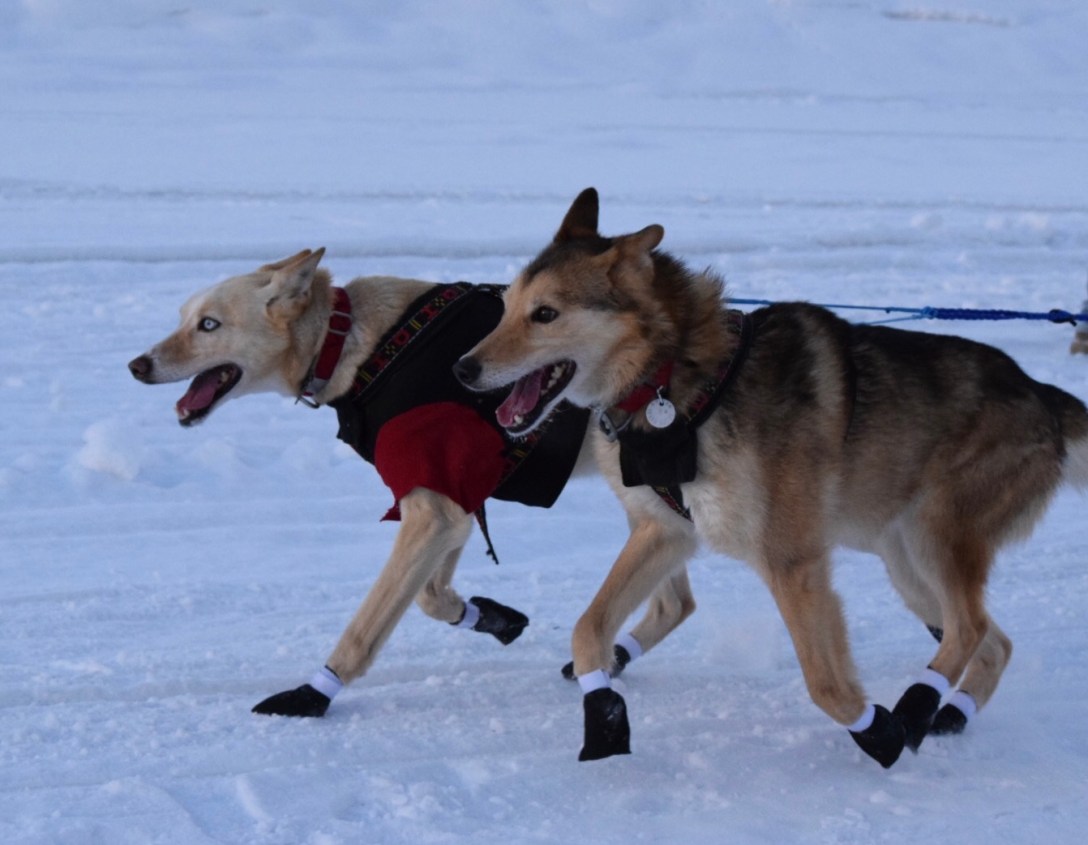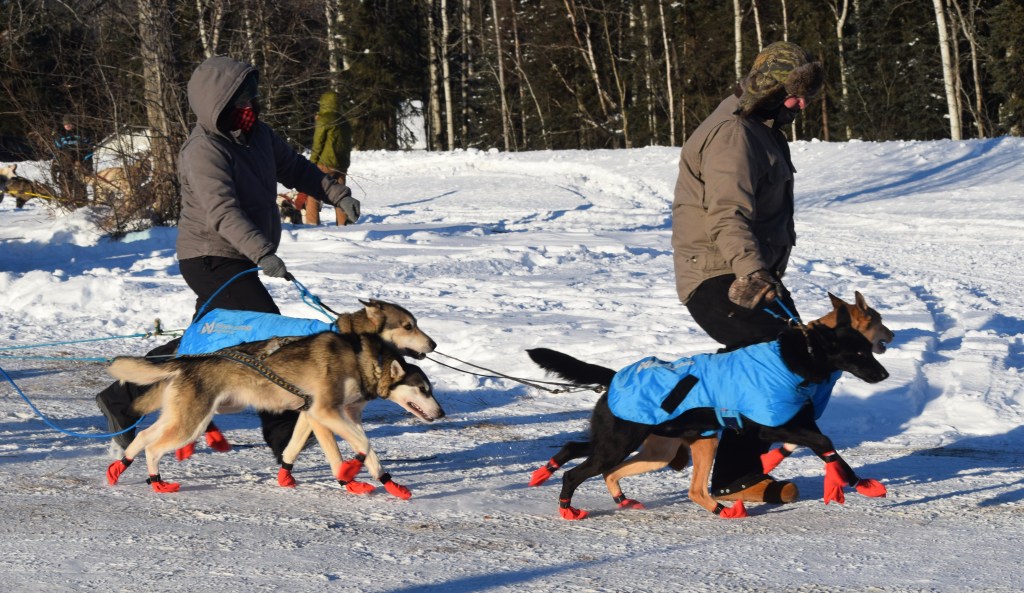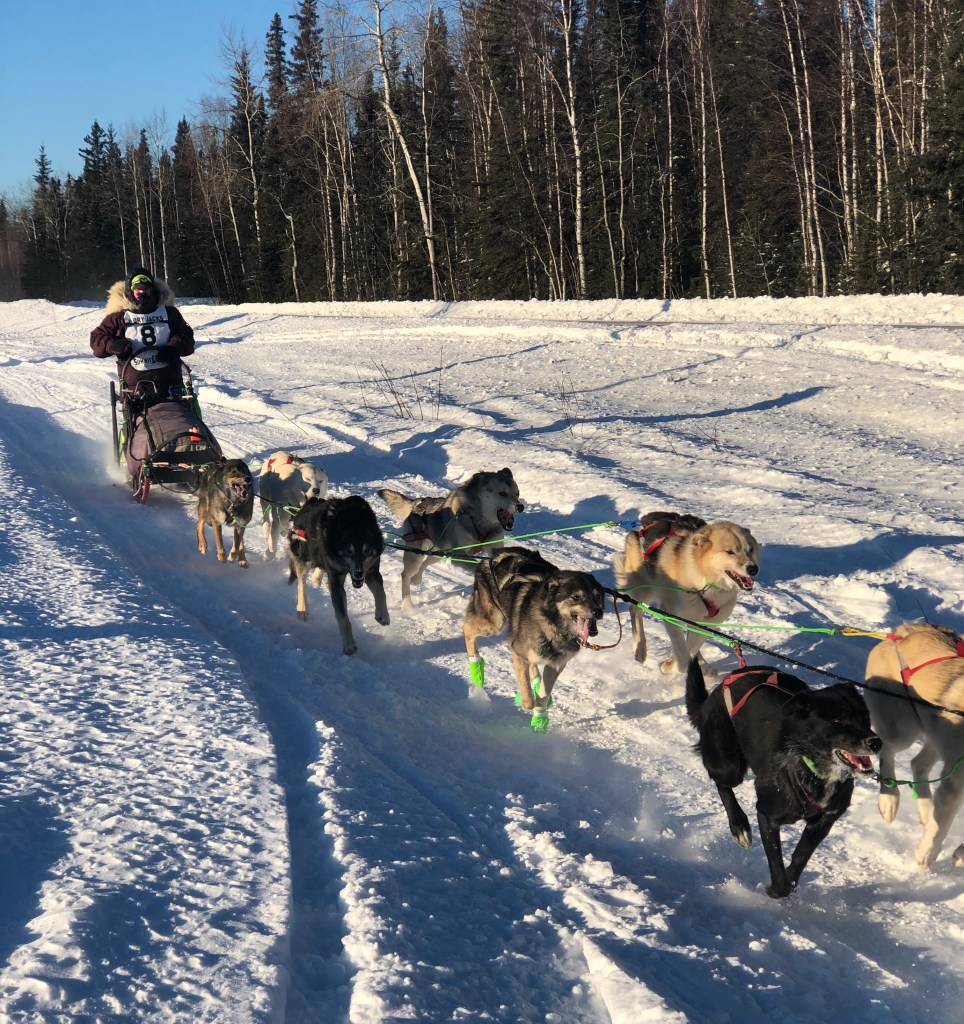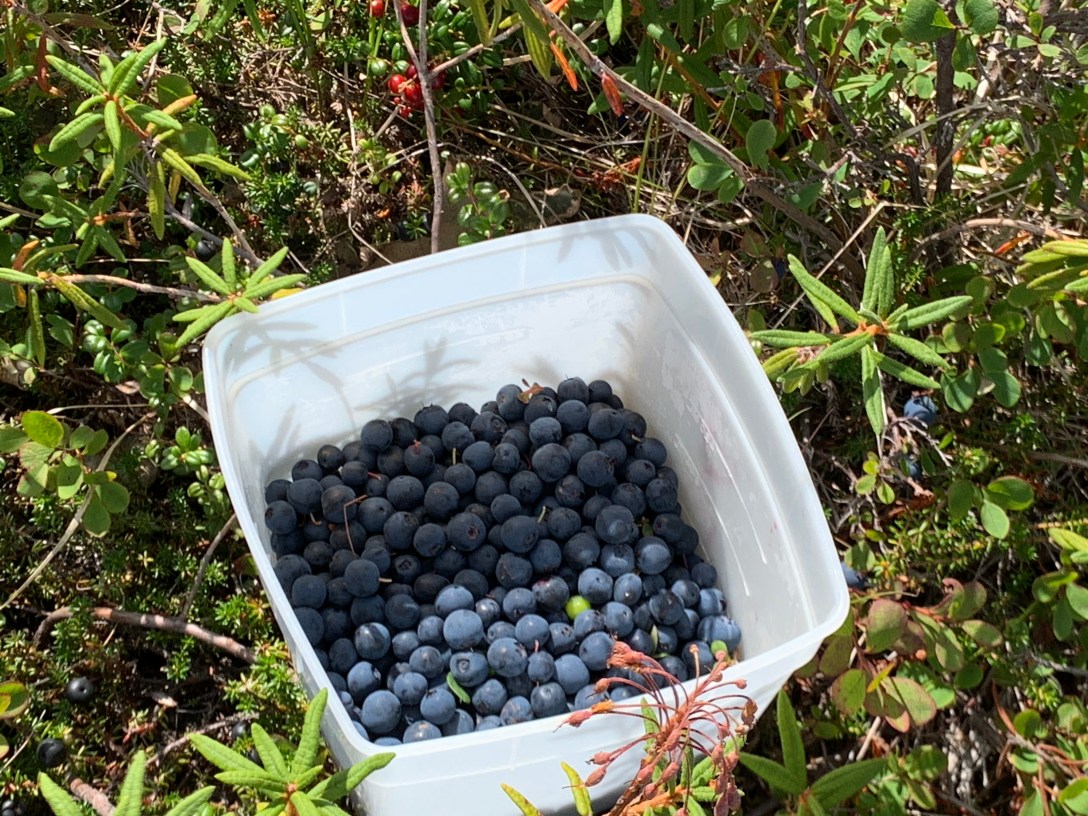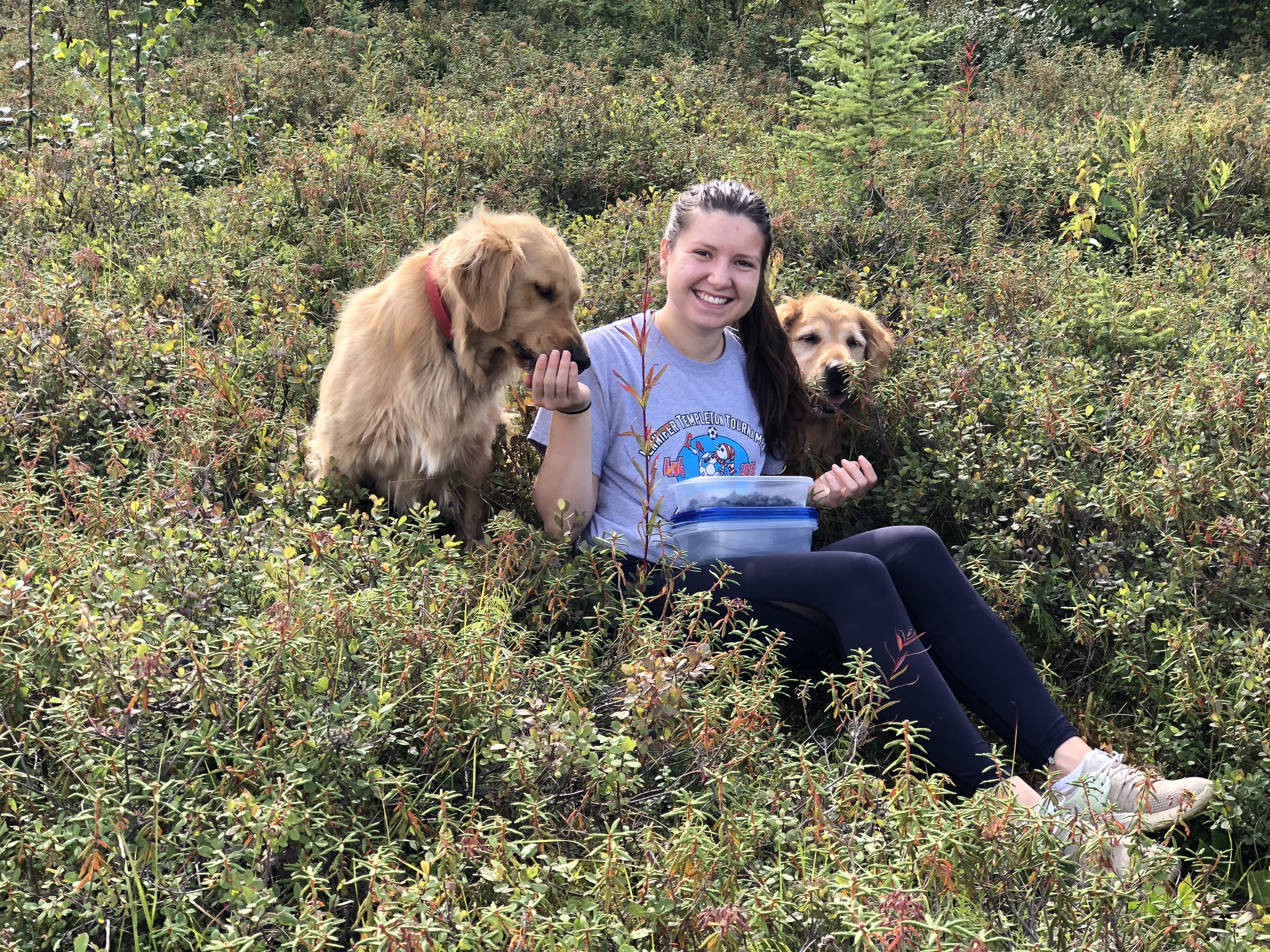Buddy was so much more than a dog to us. He was witness to many important events in our lives, growing up alongside our children, a measure of steadfastness as they navigated the years of their youth. Later, when Yanni and Helen returned intermittently from college, he always waited for them, willing them to return, a reassurance that home would remain exactly that.

Buddy arrived from Anchorage as a puppy in a dog crate, the last of his litter. The flight to transport him to Fairbanks cost more than what we had paid for the dog. He was no show dog, with his large ears and screwdriver tail, but we softened at his sight. He edged his way into our hearts quickly, not least because of his comical and endearing traits. He was certainly the “king of the castle,” laying wherever he pleased, often on his back with paws outstretched, preferably on the living room couch after Nick grudgingly moved his books to accommodate him. He learned how to ring a bell dangling from the front door when he wanted to be let out, purportedly to pee, but more often to keep one of us running to open the door for him, whatever the reason. He knew how to “go to bed” on his pillow and “stay” near the door, which he did willingly because he knew he would be given a treat in return. He loved to sit on the front stoop and watch the activities on the road, because the stone steps felt nice and cool to him. Often, he lounged in the corner of the deck, taking in the view of the Tanana Valley while the breeze ruffled his fur. We called him “Buddha Buddy” because of his gentle disposition and beautiful, contemplative brown eyes. He was terrified of thunder and fireworks and loud voices. Whenever he heard these, he lost no moment to try and climb onto our laps. He loved going for walks on the Koponen trails with the other dogs. He always ran away with tennis balls intended for communal playing, burying them in the snow for safekeeping.

I don’t want to think of Buddy as a “cancer dog” but the illness marked both his coming into and leaving our lives. He came to us shortly before I was diagnosed with leukemia. He lived with us through an illness that almost broke us. And he was the glue that held us together. He accompanied us throughout the entire ordeal, comforting us by grunting softly and breathing love into our palms. When it was time for him to leave, it was because of a cancer of his own, slowly constricting his heart, until it was evident that we needed to allow him, at the very least, a smooth transition after all he had given us. In his giant heart there was always more room, so much bigger than the one that he finally had to surrender to. He might not have known the gift he gave us, waiting for us to return from Germany, so that we could spend a few beautiful last days together. Above all he taught us to cherish our time together, to do the things we want to every day, to not let precious time slip by unheeded.

Jack, our younger dog, sensed something amiss long before we did. He hardly left Buddy’s side during his last days. Sniffing Buddy’s bed, he knew not to lay upon it again, because it had always been his friend’s safe haven. I’ll watch over the family from now on. The younger dog’s promise to Buddy was firm.

Writing this, I realize, is more for me than a tribute to Buddy. I am comforted by the fact that the last voices he heard were ours. And that he is now, again, running across a meadow, unencumbered and free.
